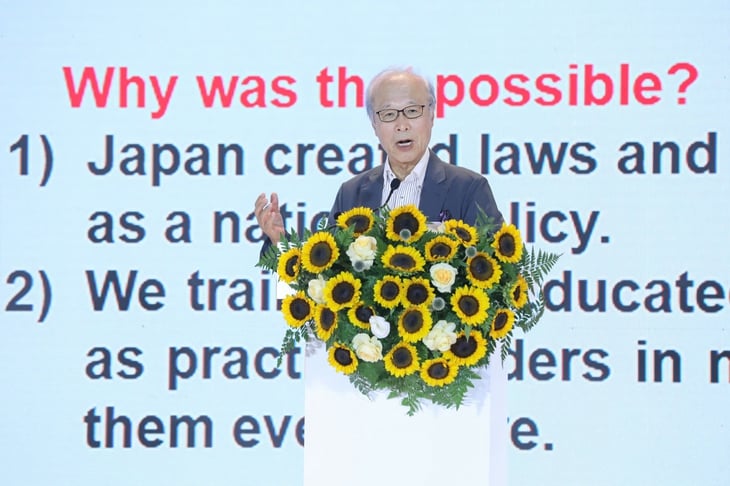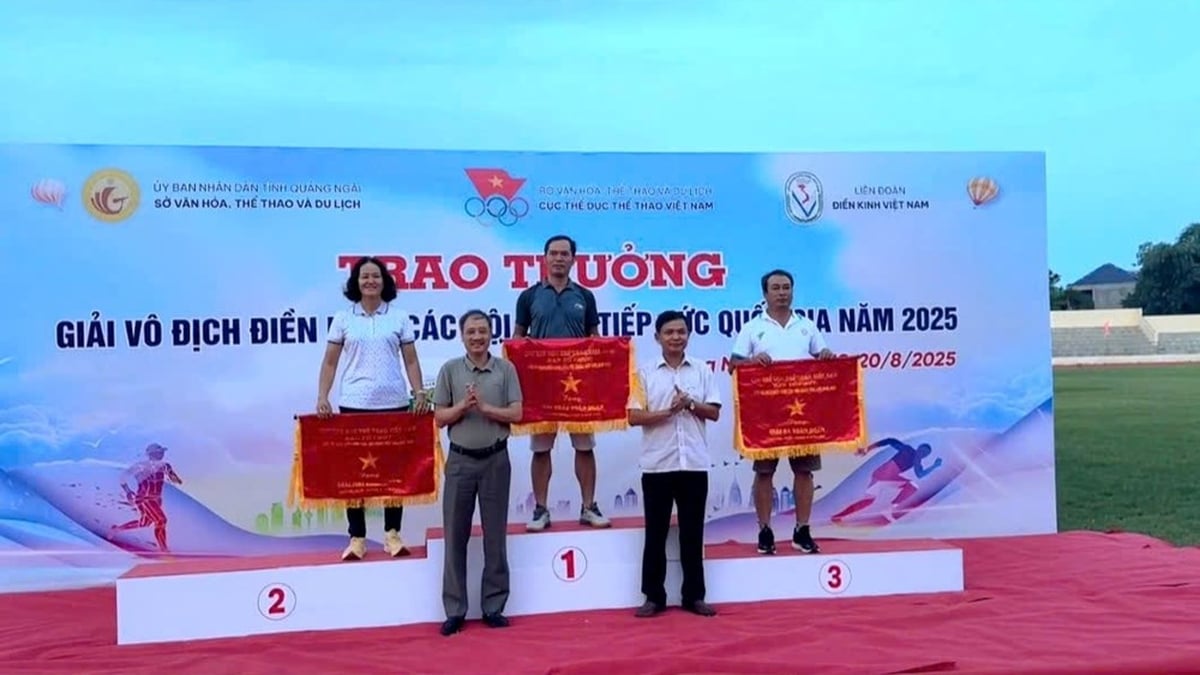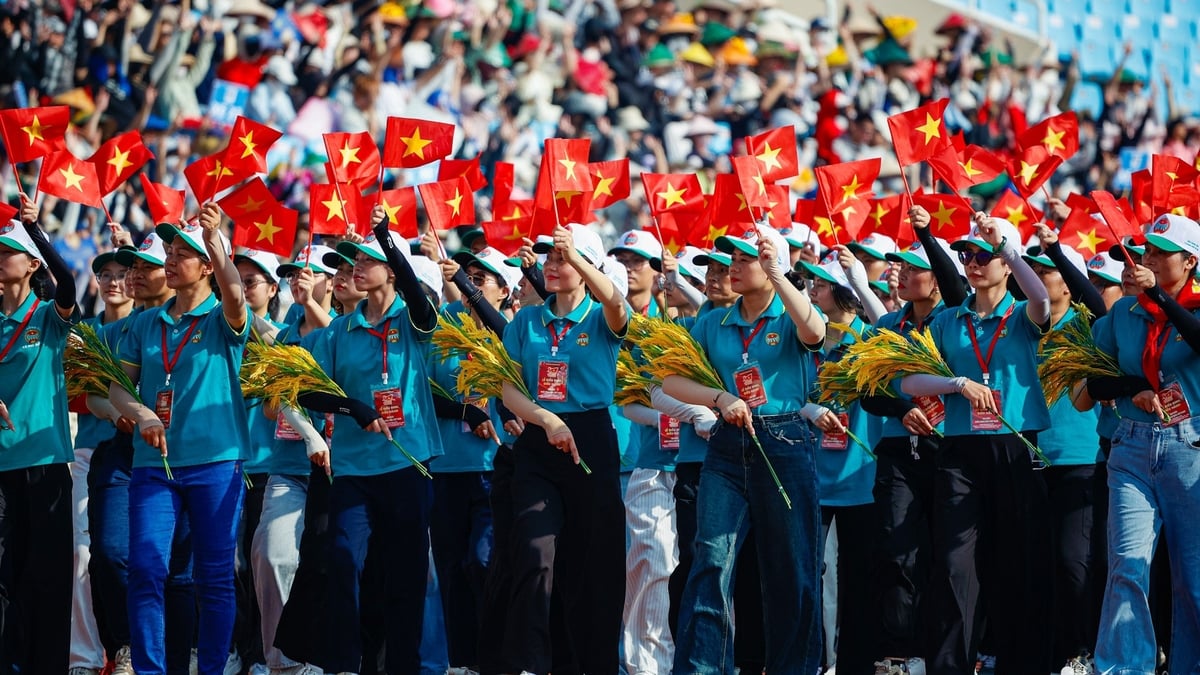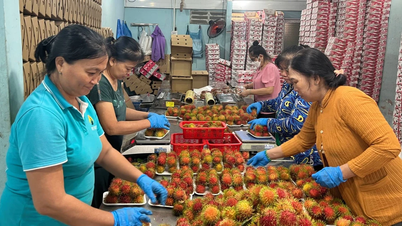
Dr. Philipp Rösler (former German Vice Chancellor ) said that Vietnam needs to soon have a national policy on school nutrition.
Experts warn that if strong and comprehensive policies are not issued, the younger generation will continue to be disadvantaged in terms of stature...
How has Japan "raised its stature"?
Japan is considered one of the most successful countries in Asia in improving height. If in the 1950s, Japanese men were only about 1.50m tall and women were 1.49m - even shorter than Vietnamese people at that time, now the average height of men has reached about 1.72m and women 1.58m, among the tallest in the region.
This success is not accidental, but stems from a systematic nutritional strategy, codified into national policy.

President of the Japan Nutrition Association Nakamura Teijji speaks at an international conference held last weekend on school nutrition.
At the recent International Scientific Conference on School Nutrition 2025 jointly organized by the Central Propaganda and Mass Mobilization Commission, the Ministry of Education and Training, and the Ministry of Health , Mr. Nakamura Teijji - President of the Japan Nutrition Association - affirmed that one of the two main reasons why Japan has been successful in improving diet and nutrition is that the country always considers this an urgent issue and implements separate national policies, with a clear system of laws and regulations.
Second, Japan focuses on training nutrition experts to work in government agencies, medical centers, communities and especially schools.
Immediately after World War II, Japan enacted the "Regulations on Dietitians," followed by the "Dietist Law" (1947). In 1952, the "Law for Improvement of Nutrition" required the establishment of communal kitchens in hospitals, factories, and schools, with nutritionists in charge.
In 1954, the "School Lunch Law" was enacted, aiming to ensure that all elementary school students received lunch at school.
Faced with the situation of shifting from malnutrition to overnutrition, in 2006, Japan enacted the Shokuiku Law (Food and Nutrition Education), which helps form healthy eating habits through knowledge and skills in food selection.
In 2008, the country further revised the "School Lunch Law", making food education a focus of schools.
Sharing the same view with Mr. Nakamura Teijji, many domestic and international experts affirmed that in order to improve stature, a strong policy on school nutrition is indispensable, with regulations and standards creating a solid legal foundation, thereby ensuring that all children enjoy equal rights from school lunch.
Vietnam needs its own law on school nutrition
In Vietnam, although there have been significant improvements, Deputy Minister of Health Nguyen Tri Thuc frankly admitted that the stature of Vietnamese people is still far behind many countries in the region.
At the same time, Vietnam is suffering from a "double burden" of nutrition. The rate of stunting in remote areas remains high, while overweight and obese children are increasing in urban areas.

Deputy Minister of Health Nguyen Tri Thuc speaks at the conference
To address this challenge, the Ministry of Health is currently focusing on improving institutions and building a legal framework for nutrition issues.
Specifically, the ministry is presiding over the development of the Law on Disease Prevention, which includes some content on school nutrition. However, many experts believe that it is necessary to have a separate, more comprehensive law on school nutrition to create a "push" to improve the height and stature of Vietnamese people, especially in the context of entering a new era - the era of national growth.
Deputy Minister of Education and Training Le Tan Dung said that the current system of normative documents on school nutrition is incomplete, leading to many limitations in management, organization and supervision.
He also proposed that, in addition to integrating the content in the Law on Disease Prevention, the National Assembly should study and develop a separate Law on Nutrition or Law on School Nutrition.
These policies will provide standards and guidelines for school meals, healthy food in schools, as well as regulations on food and drinks in canteens. At the same time, they must clearly stipulate appropriate physical activity times for each age group.
From European experience, Dr. Philipp Rösler - Hannover University, former Vice Chancellor of the Federal Republic of Germany - also believes that Vietnam needs to soon have a national policy on school meals and school milk, providing daily consumption portions and targets for each age group.
He said that the quality standards for German school meals require ensuring food diversity. In addition to vegetables, fruits, lean protein... there must be 200-250g of fresh milk or low-fat dairy products.
In addition, more than 20 million children in 27 EU member states are currently benefiting from a nutrition programme, with a budget of around 220.8 million euros. Of this, 100 million euros are for milk and 120.8 million euros for vegetables. Schools that voluntarily participate will be supported with free distribution of milk, vegetables and fruits.
"Legalizing school nutrition is not a luxury, but the foundation for investing in people - the nation's "valuable capital". When the law turns school meals from "optional" to "mandatory", it is not only a change in children's height and weight, but also a step forward in social justice and promoting national potential".
(Assoc. Prof. Dr. Zhuifeng Guo, PhD student at Harvard University, USA; Director of the Department of Surgical Innovation and Development, China National Medical Industry Management Association)
The Vietnamese-born expert, a medical doctor, former deputy prime minister and minister of health of Germany, believes that Vietnam has many favorable conditions to effectively implement school meal programs through a public-private partnership model with the participation of large domestic dairy and food enterprises.
"Vietnam needs to focus on building a school milk program with the main supply coming from domestic fresh milk to support the domestic livestock industry and ensure sustainability," he emphasized.
Associate Professor, Dr. Zhuifeng Guo - medical specialist (China) said that in reality: Since 2000, this country has banned the use of reconstituted milk in the school milk program. By September 16, 2025, China will officially ban the use of reconstituted milk powder in the production of sterilized milk according to national standard GB 25190-2010.

Labor Hero Thai Huong - founder of TH Group
As a mother, Labor Hero Thai Huong - founder of TH Group - always yearns for the aspiration to improve Vietnamese stature. She suggests that a simple but effective solution is to improve school meals, including a cup of milk called "national school milk".
According to her, children who drink a glass of fresh milk every day can significantly meet their nutritional needs, providing about 30% of the necessary zinc and iron. The Food and Agriculture Organization of the United Nations (FAO) also affirmed that fresh milk is a complete food for growing children.
"Giving children milk means not missing out on a golden opportunity for physical development. Every day that school meals are delayed is another day that the children's opportunity passes," Ms. Thai Huong worried.
She hopes that Vietnam will soon have a School Nutrition Law, with a glass of fresh milk every day improving stature, thereby increasing endurance and general health for Vietnamese people.
The International Scientific Conference on School Nutrition in 2025 with the message For a healthy Vietnam, For Vietnamese stature took place on August 14, bringing together Party advisory agencies, state management agencies, domestic and international scientists.
Source: https://tuoitre.vn/moi-ngay-cham-tre-giac-mo-nang-tam-voc-viet-them-xa-20250820084059688.htm


























![[Photo] Politburo works with Standing Committees of Lang Son and Bac Ninh Provincial Party Committees](https://vphoto.vietnam.vn/thumb/1200x675/vietnam/resource/IMAGE/2025/8/20/0666629afb39421d8e1bd8922a0537e6)
![[Photo] Prime Minister Pham Minh Chinh receives Australian Foreign Minister Penny Wong](https://vphoto.vietnam.vn/thumb/1200x675/vietnam/resource/IMAGE/2025/8/20/f5d413a946444bd2be288d6b700afc33)












































































Comment (0)